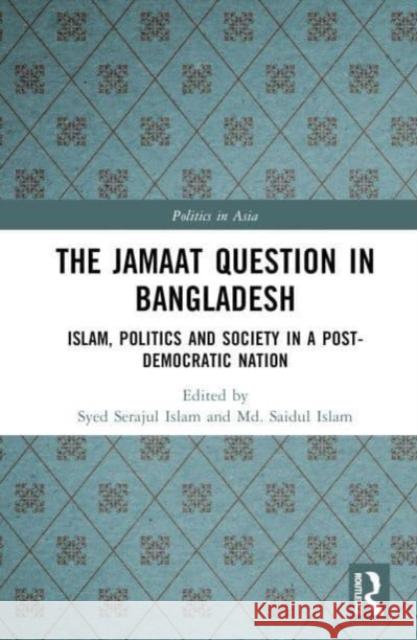The Jamaat Question in Bangladesh » książka
topmenu
The Jamaat Question in Bangladesh
ISBN-13: 9781032316383 / Twarda / 2023 / 288 str.
The Jamaat Question in Bangladesh
ISBN-13: 9781032316383 / Twarda / 2023 / 288 str.
cena 759,15
(netto: 723,00 VAT: 5%)
Najniższa cena z 30 dni: 680,04
(netto: 723,00 VAT: 5%)
Najniższa cena z 30 dni: 680,04
Termin realizacji zamówienia:
ok. 22 dni roboczych.
ok. 22 dni roboczych.
Darmowa dostawa!
The Jamaat Question in Bangladesh addresses the complex intersection of global politics and local dynamics in Bangladesh, particularly in relation to Bangladesh Jamaat-e-Islami (Jamaat).











